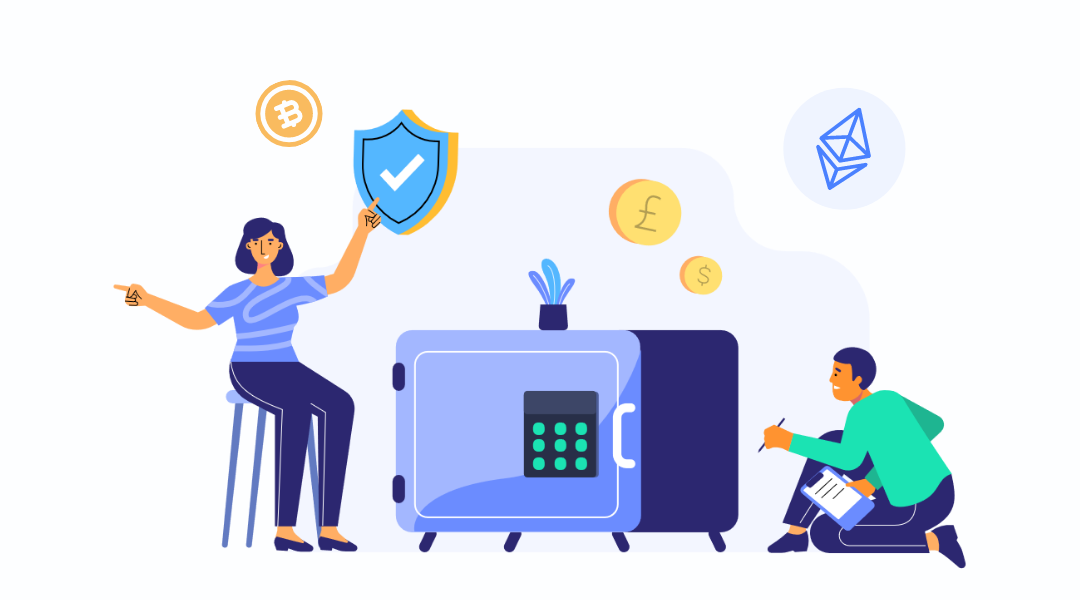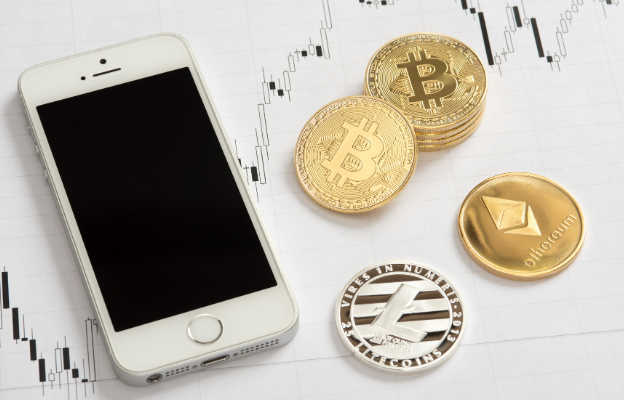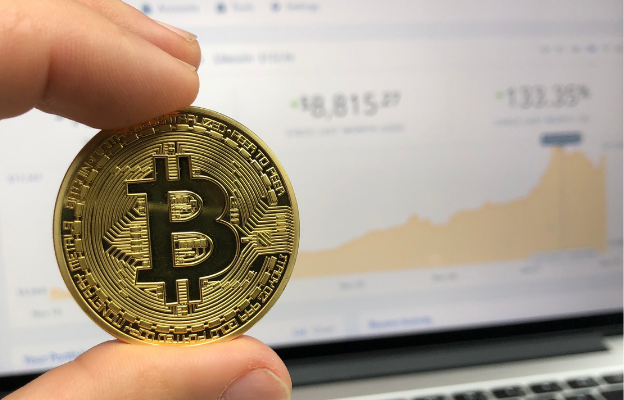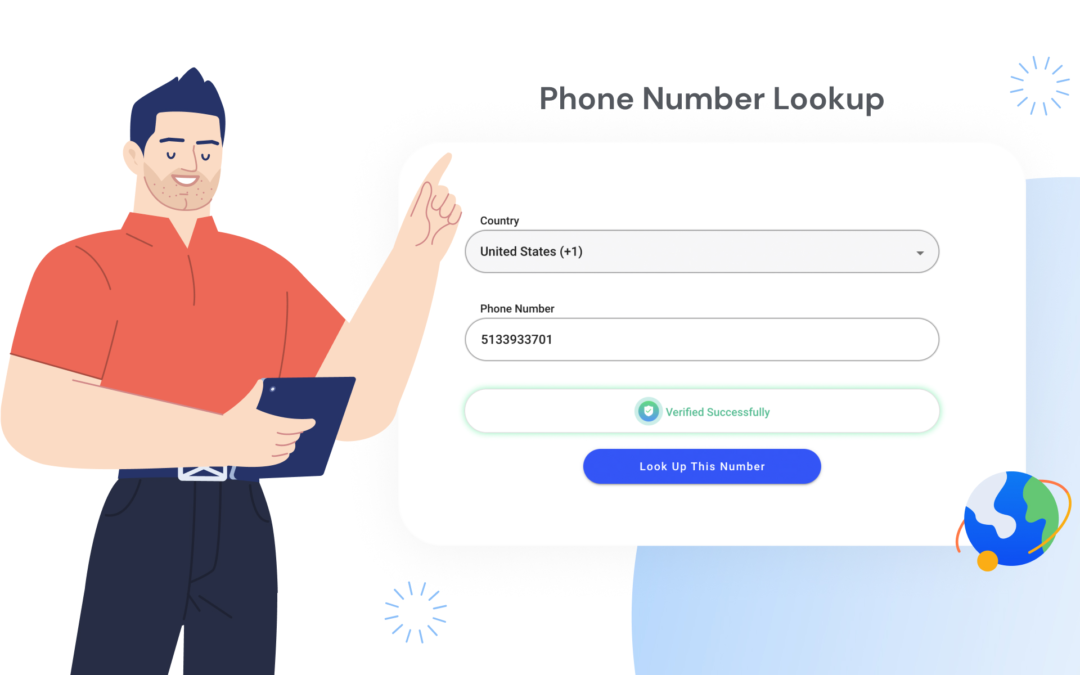
NFT crypto transactions are taking the business and art worlds by storm, opening up new opportunities, and transforming the digital market; but, what are NFTs, and how can small businesses profit off them?

What is NFT?
NFT stands for Non-Fungible Token but putting words to the letters doesn’t do much to explain what they are.
In simple terms, NFTs are digital tokens that attribute ownership of a digital property to an entity.
Digital properties are inherently reproducible. You have a photo online, and you can reproduce that photo as many times as you like with no loss of quality and no surefire way to tell the original from one of the possibly millions of copies.
NFTs are assigned to a single file, like an image, an animation, or a 3D sculpture, to provide irrefutable proof that you have ownership of the original bits and bytes, and everything else is a copy. More importantly, it gives you the right to sell your property to someone else.
Compared to real-world pieces, like an original Picasso, buying and selling an NFT can be compared to selling original artwork versus a reproduction or print of the image. You could say an NFT is a lot like a certificate of authenticity, guaranteeing you are holding the real deal.
In short, NFTs allow people and businesses to buy, sell, and trade digital items more efficiently.
The technology behind an NFT is the blockchain. The same technology drives the Bitcoin and Ethereum frameworks to guarantee the digital currency changing hands during a financial transaction is legitimate.
How are NFTs and Bitcoin Different?
Understanding a little about the difference between fungible and non-fungible can help shed light on NFTs.
A bitcoin is a fungible token (FT). All Bitcoins are identical, but they can be divided. You can split a bitcoin into smaller pieces, with each portion holding a specific value, like a $5 bill having the same value regardless of who is holding it.
You can exchange the single five-dollar bill for five one-dollar bills, but you still have five dollars and can exchange it for goods or services.
The difference with an NFT is that they hold no inherent value. The value is derived from the goods or assets they represent. Just like beauty, in the NFT marketplace, the value of an NFT crypto could very well be in the eye of the beholder.
How Does NFT Affect Small Businesses, Freelancers, and Creators?
It’s difficult to fathom why the NFT crypto market is reaching such extraordinary heights in value right now, but their popularity isn’t slowing down. There’s also no denying their ability to provide value for creators.
The internet makes stealing someone else’s work as easy as right clicking a mouse. With NFTs, it’s still a simple matter to create a copy for yourself.
Without the NFT, you might have scored a great-looking wallpaper for your Windows laptop, but it’s essentially worthless in the financial stakes.
The online conversations about NFTs focus a lot on the art world, but that’s not all they are good for, as many new NFT business ideas are being developed.
NFTs can be applied to just about anything digital, from Jack Dorsey’s first-ever Twitter post to a rare Michael Jordan viral video.
Musicians are also flocking to NFTs, as the technology finally gives them a way to make real money. Video game files have also received the NFT treatment.
Not all NFT business ideas are creative or musically inclined because NFTs are starting to find their place in small businesses.
Consider physical money, in this case, a series of 10-dollar bills. Each note has a serial number, but if you look closer, you will see the numbers are in sequence.
To a collector, a series of sequential notes is worth much more than the sum of their parts, making them a non-fungible asset.
We know that NFTs offer a way to create authenticity for a digital product, and they can be applied to just about any type of file, but they do come with another advantage royalty payments.
With the potential for residual income every time an NFT changes hands, a business can capture a portion of every sale.
Take ticket sales. Selling tickets to an event could net even more revenue should those tickets be on-sold.
NFTs are just beginning to show their potential, and more NFT business ideas are sure to surface as the technology matures.
In the future, they could be used to signify ownership of anything physical or digital, from cars to real estate. NFTs can produce a near unbreakable record of who owns what.
What is Ethereum and How Does it Relate to NFT?
Like all cryptocurrencies, Ethereum works on a decentralized open source blockchain network using ether (ETH) tokens as currency. It’s currently the second most valuable cryptocurrency.
While an ether token is not as highly valued as a bitcoin right now, it does have the honor of being the most actively used blockchain.
Bitcoin and Ethereum are digital currencies you can use to buy goods and services without a bank or payment provider. Ethereum has one key difference over Bitcoin – it’s programmable.
Ethereum’s ability to take on new information also means that it is uniquely positioned as a platform for creating NFTs.
An NFT can store information that a cryptocurrency can’t, which makes them work differently.
It’s for this reason that Ethereum is being used for more than just online payments. People are using it in the financial services, games, and apps markets to make it all but impossible for third parties to steal data or censor you.
Other cryptocurrencies can support their own versions of NFTs, and some already have. However, most NFTs entering the market are created in the Ethereum ecosystem.

More Benefits for Accepting Ethereum in Your Business
Ethereum is a growing phenomenon that is set to become the most important cryptocurrency in the world. It’s still behind Bitcoin in popularity, but more and more businesses are starting to adopt it as their preferred cryptocurrency. Here’s why.
Cheaper Transaction Fees
Trading with ETH reduces your transaction costs when dealing with customers. The rates for ETH are currently very competitive against the likes of PayPal or even a regular bank.
Fast Payments
Ethereum transactions are measured in minutes, not hours. If time is money, then trading in Ethereum will put extra dollars in your pocket.
It’s a Global System
Commerce is global, so it makes more sense to deal in a currency that won’t get bogged down with exchange rates and currency conversion fees.
Less Risk
Blockchains are incredibly secure. You don’t need passwords or account data to conduct a transaction, which means your customers are safe from a fraudulent activity like identity theft and credit card fraud.
More Options are Good for the Customer
Customers always appreciate the convenience of having more options. If you can deal with them using a payment method they prefer and already use, then you are a step ahead of your competition who don’t.
Share this article
Start texting your customers now with Textr
Connect with your customers whenever, wherever with business texting.
Related Articles

Novel AI: How Can It Improve Your Business Writing
Although AI is still in its infancy, it’s starting to help generate lyrics, generate words from letters, and other forms of writing. It has the potential to help with various areas of business marketing, especially if you need to save time with writing documents…

Everything About Free Phone Number Lookup Tools
Having a phone number looking up tool is useful for those times you get unexpected unknown numbers calling you. But some services are more reliable than others, as they’re dependent on how much information is actually available about the phone number…

What Does HMU Mean on Snapchat and Social Media?
If you’ve come across the wide range of abbreviations on social media, you might be wondering what does HMU mean on Snap and other apps. It wasn’t invented by modern social media, but it’s certainly taken off thanks to influencers and other users…
Using Textr Apps Now
Available on iOS, Android and as a web app. Try for free with a US or CA phone number.